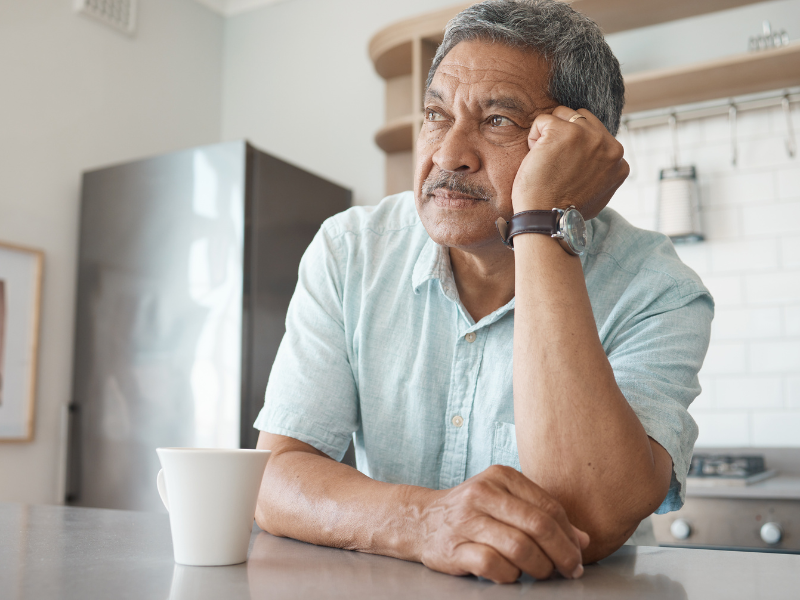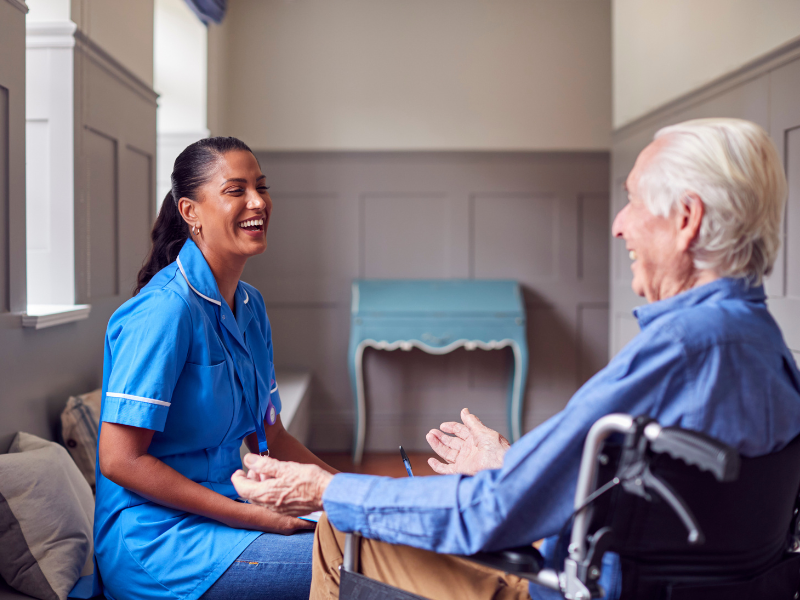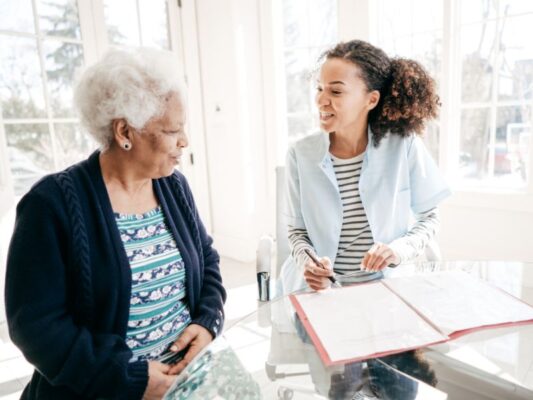Independent living is important to seniors. For most Americans, retirement goals include the freedom to enjoy our hobbies and vacations without the schedule restrictions that come with assisted living facilities. However, independent living can put your senior loved one at risk of social isolation if you aren’t careful, and unfortunately, as we get older, loneliness becomes a serious risk. Loneliness can have detrimental effects on seniors, but there are solutions.
The Detrimental Effects of Loneliness in Seniors
According to the National Institute on Aging, loneliness and social isolation can have serious detrimental effects on the health of seniors. Some negative health outcomes from loneliness include,
- High blood pressure
- Heart disease
- Obesity
- Weakened immune system
- Anxiety and depression
- Cognitive decline
- Alzheimer’s
Researchers are still gaining understanding and insights into how loneliness affects our minds and bodies. Studies show links between social isolation and how the body responds to inflammation, infection, and disease. Unfortunately, loneliness and illness have cyclical effects. As loneliness weakens a senior’s immune system, their declining health can push them further into social isolation.

Loneliness Is Not the Same as Being Alone
When we talk about loneliness in seniors, it is not the same thing as being alone. A report from the Administration for Community Living shows that about 28% of older Americans live alone, but don’t report feeling lonely. Meanwhile, those who do live with family, friends, or in assisted living do report feeling socially isolated.
So, what’s happening? Detrimental loneliness comes from social isolation. Seniors who are able to engage in the kinds of social interactions and activities they enjoy are less likely to feel lonely, regardless of if they live alone or with family. Unfortunately, the loss of a loved one and chronic illness can both affect a senior’s ability to enjoy social activities.
How Can Seniors Fight Loneliness and Isolation?
If your senior loved one is experiencing loneliness or isolation, whether from chronic illness, the death of a loved one, or other causes, you can help them overcome these feelings. Some things you can do include,
Listen – sometimes when we feel lonely or isolated, having someone to listen to us can be powerful. You don’t have to offer advice or have answers. Just listen and validate their feelings.

Help them find a new hobby – hobbies that we can enjoy with others can help us overcome loneliness and find new social connections. Joining a book club or gardening club are good options. Importantly, the hobby doesn’t have to be something they do with others. If your loved one is hesitant to step into social spaces like a book club, encourage them to pick up a hobby they can do on their own. As they regain confidence, gently encourage them to socialize.
Consider companion care – for seniors who live independently, companion care can be a wonderful benefit. Caregivers are especially helpful for seniors whose chronic health conditions or limited mobility make it difficult to do housework, enjoy hobbies at home, or engage in social activities. Caregivers can help around the house, help facilitate a senior’s hobbies, and provide transportation for social outings.
Are You Looking for Companion Care in Philadelphia, PA?
Do you or your loved one need home care services in Philadelphia? We offer a wide range of services to help seniors and those with special needs live their best lives. Contact us to set up an appointment and we will match you with one of our Angels or help you choose your Angel as part of the PAS program.



